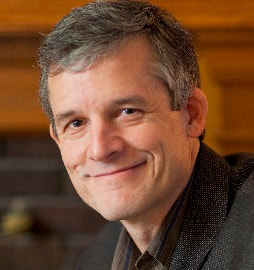AUTHOR PROFILE
Tim Bascom, former director of the creative writing program at Waldorf University in northern Iowa, has just moved to Topeka, Kansas, where his wife became a bishop in the Episcopal Church. Who he will become in Topeka, Kansas, has yet to be decided. However, he is giving himself a year-long sabbatical to figure it out—and hopefully generate a sixth book. His recent collection, Climbing Lessons: Stories of Fathers, Sons, and the Bond Between, came out as the COVID reign of terror began, meaning that he had to cancel eight planned readings and hope to catch the next wave. Aside from Climbing Lessons, he has published a novel and four nonfiction books, including the prize-winning memoirs Chameleon Days and Running to the Fire. His essays have also been selected for the anthologies Best American Travel Writing and Best Creative Nonfiction.
https://timbascom.com/ |
Tim's work appeared in Pond 57
|
Why do you write?
I write because I want to understand. It’s my way of making sense of the world—and my place in the world. I also write because I want to create. I just feel more alive when creating. But there is another side to this obsessive-compulsive tendency. I think it has been there all along, though I wasn’t acknowledging it. I write because I want to connect. In other words, I am not satisfied until someone reads what I write, which (in its own weird and marvelous way) makes me feel less alone as a human.
What other creative activities are you involved in?
Visual art is my next “go to.” I love looking. I eat with my eyes. I can stare out a car window for hours with no need for music or conversation. Which means that I sometimes stop on roadside shoulders to take photos of migrating cranes or decrepit grain elevators or shadows thrown down by hay bales. It means that I love art museums too—and the time given to contemplating a favorite painting. Sometimes I sculpt as well, and there is something quite pleasant about the way stone or wood resists the chisel, only slowly yielding to the shape I am after. But writing is a kind of linguistic sculpting as well, isn’t it? The words resist and require time. However, when they take shape, it is very satisfying.
Who is your favorite author and why?
This question is not fair! I could name a dozen favorites at least, trying to chronicle the ones who won my attention at different stages in life. Instead, I guess I’ll name a couple recent favorites, one for each genre: Elizabeth Strout in fiction, Tara Westover in memoir, and Dorianne Laux in poetry. All three go beyond being clever. They offer emotional honesty and insight of the sort that connects with me and matters for me.
Tell us about the mechanics of how you write.
I wish I could do the disciplined 5 a.m. thing, but apparently it is not in me. I don’t have a daily habit. I tend to write whenever life allows, which is often at odd times. And I work on a computer if I can, having become quicker at keyboarding than penning. One added thought: getting the courage to launch a new piece is difficult for me. It’s easier to return to an old piece and tweak it, numbering the new versions—6, 7, 8, etc. But I am trying to push myself to launch more frequently and to write more freely, generating new, un”controlled” stuff instead of being so caught up in polishing.
Finally, what do you think about Carp, the fish, not our website?
I believe koi are carp, right? Okay, to be sure, I looked up that word, and in Japanese it means “brocaded carp.” These splotchy orange and white and black fish are beautiful to watch at the botanic center near my house. They swarm toward my wife and me, anticipating that we will toss food pellets. If I move my arm suddenly, they startle, slapping each other and sending spray everywhere. They are a lot smaller and prettier than the giant armored carp we used to drag out of the county lake when I was a kid. Those pale bottom feeders, with their huge silver scales, seemed like heavy ghosts as we reeled them out of the darkness. They were ugly, but they came up out of unknown and mysterious depths, so there was something magical about their transition into our airy realm. I don’t know, but maybe what we reel in from our subconscious, through the act of writing, is not unlike lifting one of those carp out of its liquid realm into our own.

